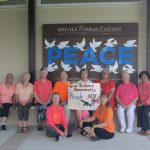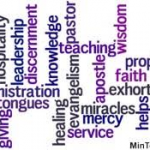The Peace and Justice Committee at Holy Name Monastery suggested the Sisters and volunteers wear orange on June 7th, Gun Violence Awareness Day, in support of groups working for an end to gun violence. It seems that orange is the chosen color because it is the color hunters w ear to protect themselves.
ear to protect themselves.
There are more guns than people in the United States. Since 1994 the US Catholic Bishops’ Conference has supported “reasonable measures to address the problem of gun violence.” “We have seen too many shootings and much too often of late,” said Sister Mary David. We Benedictine Sisters of Florida do what we can – pray, sign petitions, call legislators … wear orange.”
Continue Reading




